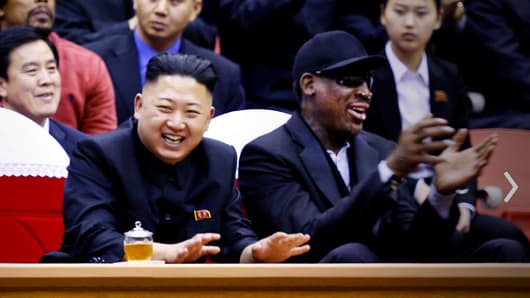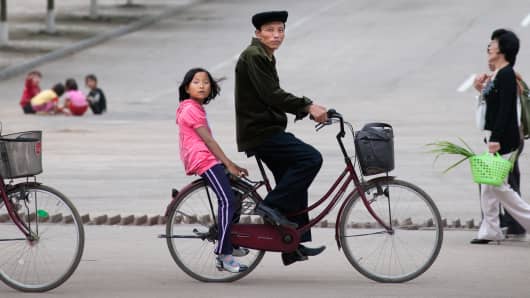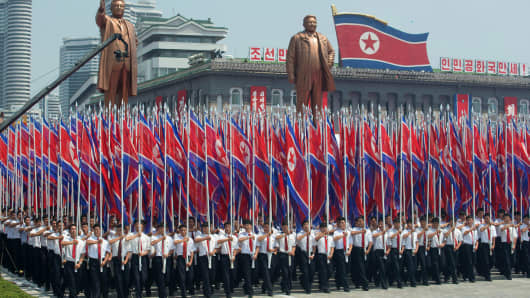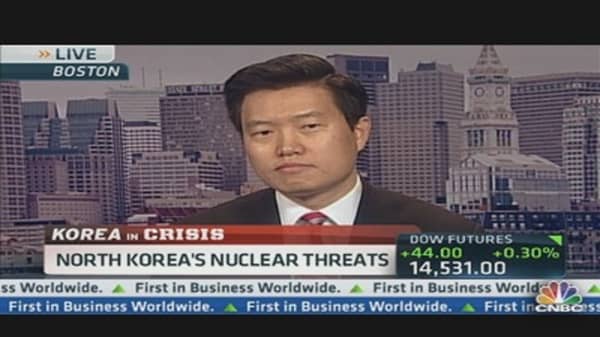Entrepreneurs in the 'Hermit Kingdom'? You bet
Whether we're talking about Cuba or other political hot spots, private enterprise as a survival tactic is not new. But what's unique about North Korea is its neighbor to the north. As China's economy has grown, its influence has spilled into North Korea.
The initiation of a state development bank in early 2010 is rumored to have been initiated by the Chinese, frustrated by the degree of corruption in North Korea and fearful of risks facing Chinese investors, according to Stephan Haggard and Marcus Noland. They explore North Korea in their blog and book, "Witness to Transformation: Refugee Insights into North Korea."
Quick history lesson here. North Korea—as large as Pennsylvania—sometimes is called the "Hermit Kingdom." It has largely been isolated from the world since 1945, at World War II's close. About 36,000 Americans were killed during the Korean War, from 1950 to 1953, and a physical border was created between the communist North and democratic South. The border today is still the most militarized region in the world.
Amid this life-and-death scenario, North Koreans—from housewives to the well-connected elite—are managing an existence with discreet private-economy practices. If you visit a North Korean open market, for example, you'll find barter has given way to cash-based deals. Transactions are often in foreign currency—the Chinese yuan in particular, said Lankov, who highlights the country in a new book, "The Real North Korea: Life and Politics in the Failed Stalinist Utopia."
North Korean per capita GDP in 2010 was about $1,800, on par with Ghana, according to the CIA Factbook. Economic statistics suggest that by 2005, North Korean GDP overall retreated to late-1980s levels, according to Haggard and Noland. In contrast, South Korean per capita GDP has soared from around $1,200 in the early 1960s to more than $22,000 today.
Grass-roots market forces
Grass-roots market forces emerged after a combination of political fumbles and an agrarian policy, which included terraced fields. That led to soil erosion amid torrential rains during the mid-1990s. Food rations were halted, and roughly 1.5 million North Koreans died during the famine, though estimates vary widely.
Whether we're talking about North Korea or other socialist states, when food runs out and the men are away seeking work, women look around their homes and ask: "What household goods can I sell? What can I trade?"
In North Korea's cities, markets popped up, where women earn family income. While men often work for state enterprises, some three-quarters of the market vendors today are women, Lankov said.
Around 2000, those markets were replaced by larger ones that are tacitly tolerated by authorities. "I would not describe them as 'black markets,'" said Lankov. A native of the former Soviet Union, Lankov lived in North Korea as an exchange student in the 1980s. And the markets were just beginning.
(Read more: Inside Cuba: Market economy takes hold in socialist state)







